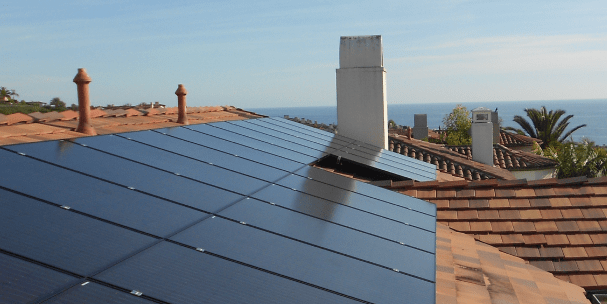

From ice storms to blizzards, from arctic blasts to overcast days, winter brings an array of weather to the United States. If you’re considering going solar but wonder how solar panels perform in these elements, we have good news. Solar electric or photovoltaic (PV) panels still successfully generate electricity in snowy and other harsh environments, researchers from the U.S. Department of Energy have discovered.*
However, if you live in a climate that’s prone to heavy snow accumulation (like those Nor’easters) there are things you should know about your rooftop solar array. Read on to learn about how solar panels work in the winter.
Solar Power Generation Summer vs Winter
During the summer, your solar panels can produce a significant amount of clean energy, thanks to long, sunny days. But during the winter, daylight hours are shorter, the sun is lower in the sky, and your rooftop is exposed to more elements, such as rain, snow, ice and thick fog or cloud cover.
These weather factors won’t halt production, but you can expect it to decline, depending on the severity of these elements. For instance, one solar installer found that their rooftop solar systems produced about 40-60% less energy during December and January than their systems did during the peak production months of July and August.*
How Solar Panels Work – Heat vs. Sunlight
Solar energy works by harnessing rays of light from the sun, and turning it into electricity. Solar cells (or PV cells), convert the sunlight directly into electricity, creating direct current (DC) electricity. That power travels through an inverter, which converts it to alternating current (AC) electricity that can be used in your home.
It’s a common misconception that solar panels rely on heat from a sunny day to produce electricity. As we mentioned above, it’s the light that is converted into energy. In fact, colder temperatures can help improve the performance of solar cells production, say scientists. Light is composed of “photons” that hit solar cells and bump into electrons, creating a charge. At high temperatures, the output power will drop because more of the energy is lost before it escapes the solar cell and creates energy. solar cells heat up.* Therefore, because solar panels only need sunlight to produce electricity, unless your solar system is blocked by shade from trees or snow, it will continue to absorb energy during a sunny day – even in the winter.
The Effects of Snow on Solar Panels
A quality residential solar system is built to last about 25 years. When choosing a rooftop solar system, remember that premium-grade panels are fully tested to operate year-round, and withstand extreme weather conditions. For instance, snowfall should not damage solar panels because they are tested to endure freezing temperatures and bear the weight of heavy amounts of snow or debris.
If mounted correctly and installed by certified technicians, solar panels are designed to handle a certain amount of snow, rain, and hail. Your solar panels should resist corrosion, impact, and extreme shifts in the weather.
Solar Panel Snow Removal
Solar electric panels are smooth and often installed on a tilted roof surface, so snow will naturally melt, and slide off them. We recommend you move cars, patio furniture, and other items that may get damaged by the impact of the snow falling off your roof since it may slide off in large sheets. As a precaution, you can also install snow guards to prevent large amounts of snow from falling at once and to protect the areas below the edge of your roof.
Sunnova’s Production Monitoring and up to 25-Year Warranty
When investing in a solar system, it’s important for homeowners to understand their home solar warranty and maintenance agreement terms. Sunnova home solar service and Sunnova SunSafe® solar + battery storage service comes with our Sunnova Protect™ up to 25-year system coverage, featuring worry and hassle-free maintenance, monitoring, repairs, and replacements. And, in some markets, we offer an energy guarantee where we commit your system will produce the amount of energy outlined in your agreement or we will refund or credit you the difference. Our Sunnova Protect™ plan safeguards your home solar investment to help ensure it performs to its maximum potential.
If you live in a part of the country like New York or New Jersey that experiences snowstorms and/or extreme weather conditions during winter months, having up to 25-year system coverage comes in handy. Having the peace of mind that your solar system performance is being monitored 24/7 to detect insufficient solar generation, helps makes sure that your solar panels will perform, rain or shine.
Find out if solar is right for you – click here for a no-obligation quote and take control of your energy bills today.
Products & Services
Energy guarantee not available for Easy Save Monthly plan. Energy guarantee is not available in Florida, Guam, Hawaii, Puerto Rico and Saipan.


